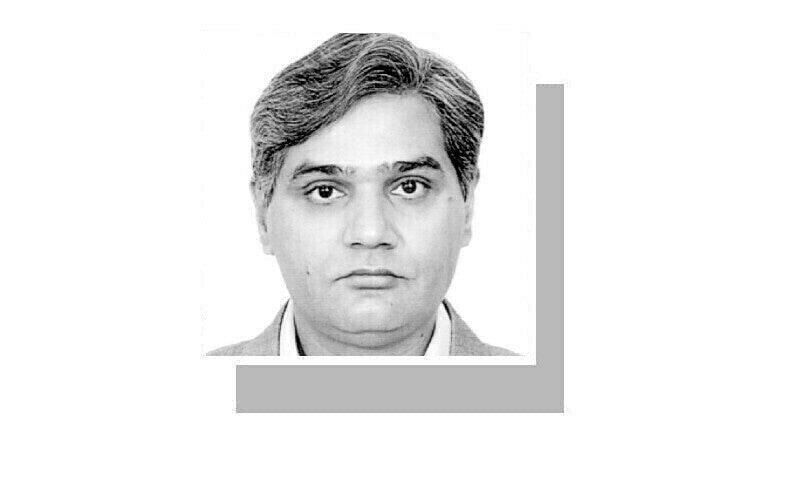During his recent official journey to China, President Asif Zardari confirmed Pakistan’s commitment to strategic partnership with the country. In his meetings with Chinese leaders, especially President Xi Jinping, the Pakistani leader emphasized on new avenues for cooperation under the China Pakistan Economic Transit (CPEC). His visit came at a critical time when the challenges of terrorism and security within Pakistan are examining the power of bilateral relations.
The visit is of particular importance because President Zardari’s party is in power in Balochistan and Sindh, the two provinces where Chinese citizens have been targeted in recent terrorist attacks. These attacks have raised serious concerns and has put pressure on the government to ensure the safety of Chinese citizens in the country. Although it is true that it is the establishment that manages security issues, provincial governments are responsible for law enforcement and policing. Their cooperation is very important to deal with the danger.
The priority is to attract more Chinese investment, whether under the banner of CPEC 2.0 or under other bilateral economic projects. Although Pakistan’s strategic and defense relations with Beijing are strong, the purpose is to strengthen them without compromising on their foreign policy stance, especially in relation to its relations with the United States and the West. However, Chinese investors are more reluctant to invest here as the security risks, uncertainty of debt payment, bureaucratic red tape, and the western tilt of bureaucracy.
To maintain mutual trust, it is necessary to ensure the safety of Chinese citizens in Pakistan. The relentless threat of security has put bilateral relations under pressure, emphasizing the need to install effective measures to assure Pakistan to protect its interests.
Pakistan is struggling to balance its relations with both China and the West.
Repeatedly, the two countries appear to confirm their commitment to strengthen economic and security cooperation. But progress in overcoming obstacles has been slow, Pakistani establishments often make promises that cannot be fully practiced where implementation is concerned.
For example, after two incidents last year, Chinese citizens lost their lives, Interior Minister Mohsin Naqvi agreed to develop a joint security strategy with China. The agreement took place during a meeting with Chinese Ambassador Jiang Zaidong after an incident in Karachi, in which two Chinese nationals were injured in firing by a security guard.
However, subsequent national and international media reports say that such a joint security mechanism may not be viable, as foreign troops are not allowed on their homeland, except for joint military exercises or related activities. Gives To appease China, Pakistan has intensified counter -terrorism efforts and crackdowns against insurgents in Balochistan and KP. However, important security challenges remain.
In addition, the details of the proposed security arrangements are difficult. What does China want? In addition, who is the Chinese security official? Are they a private contractor or a member of regular security apparatus? All this is vague.
It was clear that China has actively achieved the development of such mechanisms. But further explanation is needed from Pakistan. Although China and Pakistan already maintain deep security cooperation at several levels.
During President Zardari’s visit to China, the Home Minister, who was part of the delegation, agreed to increase intelligence sharing and deepen counter -terrorism cooperation at a meeting with his counterpart, Public Security Queen Yanjan. – The meeting was of particular importance. It has been alleged that Mr Naqvi had attended an anti -China event in the United States, after which the minister later refused. This incident is considered another challenge in promoting trust and trust between the two countries.
China has never objected to Pakistan’s practical relations with the West and believes that this country has maintained a long -term bilateral relation with the United States. In fact, Pakistan’s relations with the United States, sometimes also offer Beijing’s interests – for example, in the 1970s, providing a secret meeting between Zhou Anili and Henry Kissinger. However, Beijing’s concerns arise from various factors. China does not want Islamabad to take advantage of its relations with Beijing, while simultaneously organizing its relations with Washington, especially when US relations with Pakistan are strained.
The Chinese have considered Mr Naqvi closely associated with Pakistan’s military establishment rather than being an integral part of the civilian government. If Mr Naqvi was in Washington DC during the inauguration of President Donald Trump, he feels it in a different context – speculation that Pakistan tries to maintain financial supply lines, especially international Through the Financial Fund and the World Bank. Their main concern is that Pakistan’s dependence on international financial institutions affects the CPEC in a number of ways, from loan payments to the privacy of the project.
Pakistan is struggling to balance its relations with both China and the West. Some close advisers to the military establishment, including former diplomats and generals, are advocating for aligning more closely with China, and argue that China’s rise is different from the Soviet Union. However, the establishment has not yet fully reviewed the long-term costs of relying on a single global power and its implications-especially in view of the question of how such relations in strategic, political and economic cooperation. Will work
The equation is more complicated by Pakistan’s Indian -based security ideology, which is also facing the challenge of integrating the Taliban government into its broader strategic framework. Despite these complications, the Prime Minister and the plan are hopeful that China will start work on two major mega projects this year at the Highway Phase Two and ML-1.
The author is a security analyst.
Dawn, appeared on February 9, 2025











































